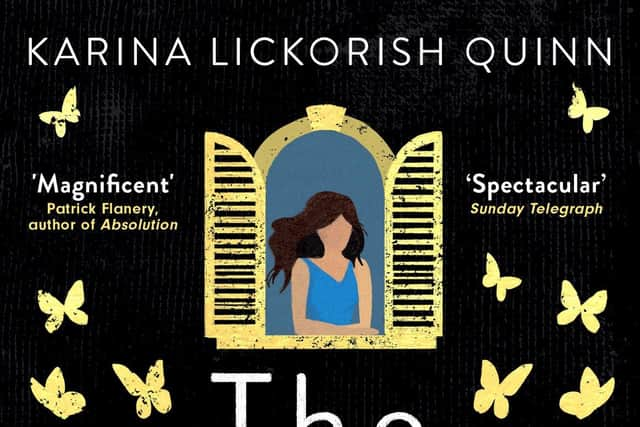Debut novel from Leeds-based Peruvian-British writer Karina Lickorish Quinn delves into Peru's past through a compelling family story


Karina Lickorish Quinn has described her debut novel The Dust Never Settles as a love letter to Peru, to Latin America and to her ancestors.
The Peruvian-British writer, who is a lecturer in Creative Writing at the University of Leeds, was prompted to write the book initially by a significant personal loss. “The very beginning of it was the death of my grandparents in Peru – there was a lot of grief, I adored them,” she says. “I was also grieving my connections to Peru – when you are a second generation person, the loss of those ancestors feels like a loss of connection to that culture. Then as I was doing my historical research I came across so many stories in Peruvian history that I had no idea about.”
Advertisement
Hide AdAdvertisement
Hide AdThe novel is an extraordinarily rich, intricate meditation on memory, regret, and the way in which the past and present are inextricably linked, told through the prism of a family story.


It skilfully weaves together multiple narrative threads as the protagonist Anaïs Echeverría Gest flies from London to Lima to oversee the sale of her ancestral home – the ‘yellow house’ on the hill overlooking the capital below. Within its walls are many ghosts and buried secrets which refuse to stay quiet. It is an incredibly accomplished first outing.
“I found it troubling that history gets told by and for some people and not others, so I widened the scope of the novel,” says Lickorish Quinn. “The writing and researching happened cyclically. It was an almost spiritual process of looking at where the gaps were and which stories were screaming to be told – and from there the characters came to me. At the risk of sounding weird or sentimental, I talk about my method as ‘conversing with ghosts’. I would search through the archives and court documents, looking at who didn’t get to speak and think about what they would tell me if they could. I would sit quietly and think about what that person’s life might have been like.”
The novel has an impressive majestic sweep which takes the reader from the beaches and salsa halls of contemporary Lima on an eventful journey into Peru’s past through civil war and right back to the rise and fall of the Inca empire.
Advertisement
Hide AdAdvertisement
Hide Ad“In Western society we have this eagerness to turn everything to the present – the dead are gone and the past is past – but most other cultures don’t. In Andean culture, space and time is one and it moves in circles, so everything returns. A lot of us have experienced walking into a place and feeling something has happened there – and that is more real than Western science wants us to believe.”
Writing the novel brought up some complex emotions for Lickorish Quinn as she considered the legacy of Peru’s colonial past. “I think I ended up using the novel to work through my feelings of grief and anger and disbelief at things that have happened in my country,” she says. “There was also guilt that many of my ancestors were complicit in some of that. I want to be part of the healing and helping to make a better future.”
Karina Lickorish Quinn will be speaking about her novel at Leeds Central Library on May 19. ticketsource.co.uk/leedslibraryevents
Literary Influences
Karina Lickorish Quinn’s writing has been compared to Isabel Allende, Kazuo Ishiguro and Gabriel García Márquez and she was described in one review of The Dust Never Settles as ‘the new face of magic realism’.
Advertisement
Hide AdAdvertisement
Hide AdThe novel is lyrical, heartfelt and peopled with a huge cast of characters from various periods of Peru’s past. Their stories are sensitively and compellingly told by Lickorish Quinn who creates a vivid world of colour and incident, interweaving the various narrative strands with great skill.
“When I completed what I felt to be the final draft, I remember feeling like I had crawled out of a hole underground,” she says. “Stepping out of that world felt so surreal and it took me a while to readjust. The characters still live with me but in a different way. When you are writing they feel very real and take on a life of their own. They have receded a little now.” She mentions several literary influences and inspirations which have been important to her. “A lot of them are Peruvian authors, most of whom haven’t been translated into English. I enjoy the work of Óscar Colchado Lucio, Eduardo González Viaña and José María Arguedas who focus on indigenous literary traditions and Karina Pacheco Medrano who exposes wider socio-political issues through the domestic sphere. In Anaïs’s chapters I was influenced by Elena Ferrante and in the historical chapters Salman Rushdie was a big influence.”
The Dust Never Settles is published in paperback by Oneworld on June 2.